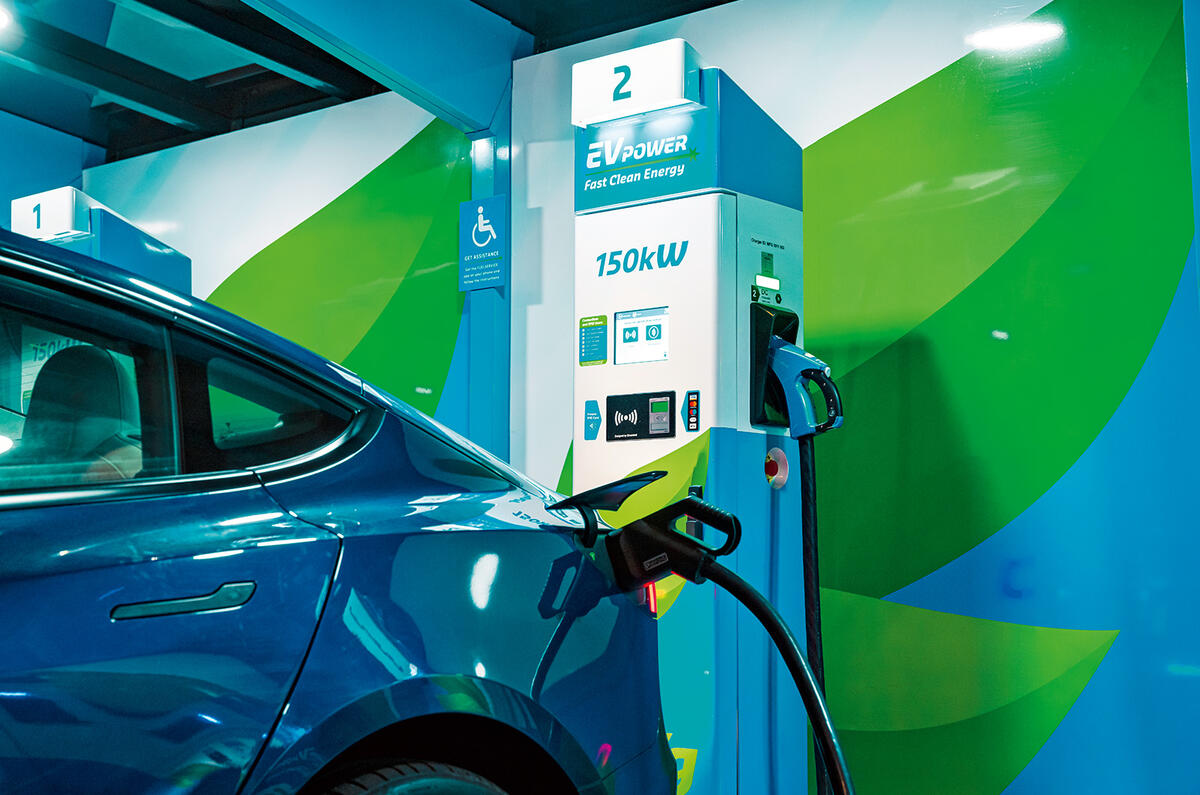Transport minister Trudy Harrison has vowed that the UK government will help create "one of the best electric vehicle charging networks in the world" to help drive EV adoption.
The government is due to release a national strategy for the UK charging network on Friday, which will be designed to ensure there are enough charging points to keep pace with the rapidly growing number of EVs on UK roads.
Speaking at the SMMT Electrified summit, Harrison highlighted that more EVs were sold in the UK in 2021 than in the past five years combined. She said: "As demand for EVs is approaching a tipping point, the transition to electric will be organic – not manufactured in Whitehall – and affordable. Not idealistic, but logical.
"We've got to make EV technology part and parcel of our everyday experience – and that's why we're expediting our efforts to create one of the best electric vehicle networks in the world."
She added that the strategy "will define our vision for the continued roll-out of charging infrastructure, focusing on the transition from early adoption to mass-market uptake and setting out our next steps to address the barriers to private investment, levelling up charge point provision and making it easier than ever for drivers to go electric."
There are currently around 29,500 public EV chargers in the UK, including 5400 rapid chargers. Harrison said 600 new chargers are being added to the network every month, adding: "In the future, there will be chargers installed in every new home, office and supermarkets, allowing people to charge while they sleep, work and shop."
Harrison said that will lead to more than 145,000 charge points being installed every year. But she added: "Meeting the needs of future drivers means pushing those numbers higher. We'll harness ingenuity by working with industry, charge point and energy providers and local governments to ensure that we keep that momentum. It will be a combined effort to make charging convenient and commonplace, but growing confidence in the infrastructure is not just about getting more charging points in the ground."
A key part of expanding charging provision will be in expanding home charging, Harrison said, which will be "central to future driver behaviour". But she said the government recognised that "can also be a barrier: if you don't have access to a driveway at your home, you might think twice about taking the plunge into EVs."
She added that, as a result, the charging infrastructure plan will "refocus" on domestic charging provision for rented properties and blocks of flats, to ensure they offer "the same opportunities as those with home charging on a driveway. Our reforms will enable owners and landlords to invest in the right technology in the right place at the right time."









Join the debate
Add your comment
Of the 29,000 current chargers, almost 50% are in London and the South East. The challenge is creating a network not adding to the existing concentration in urban areas and the South. Try to drive in Scotland or Wales, Norfolk and Lincolnshire - infact anywhere vaguely rural and find out how scarce chargers are especially any that are rapid chargers and of use during a trip and not at a destination where a 10+ hour full recharge is acceptable. And the network is fragmented with a bewildering array of suppliers and apps and an utterly woeful record of unrepaired units. Church Stretton in Shropshire has a 50kw charger that has been awaiting repair for more than a year. But that's still within the 29,000 units everyone pats themselves on the back for. Britain will NEVER have a world class infrastructure - we can only hope it's passable.
Where's all the extra Electricity going to come from?, what about people who live in remote areas?, as EV takes over, will costs go up to match the lost revenue from ICE powered Cars?, im sure there are others who have their questions, probably better put than mine,and, ultimately, where is the finance going to come from to give every EV user no matter where they live or go a charging point?
Ans: by using the electricity that was refining oil then there's wind, water,solar nuclear, gas etc. The boffins at electric companies have already said no real problem with supply issues as people charge over night to get 200 miles in their battery, don't tell me you know better and just how often do you go over that in a day. Remote areas, just how far is anyone away from a power point in this country.
Lost Revenue issue, use the fairer charger per mile. Where will those people go that do not have off street parking, a similar proplem I have at the moment in that I don't have a petrol pump on my drive way.